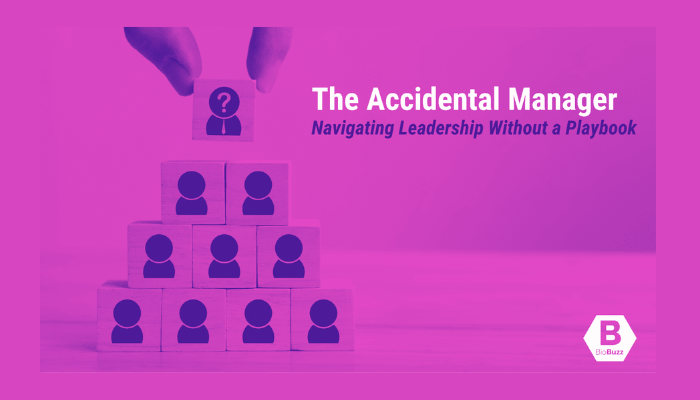MASTERING THE ART OF THE INTERVIEW PROCESS (HIRING MANAGER)
Mastering the art of interviewing as a hiring manager is a multifaceted skill that requires a combination of preparation, interpersonal skills, and a deep understanding of the requirements of the position you’re hiring for. By honing your interviewing skills, you can effectively evaluate candidates, make informed hiring decisions, and contribute to building a strong, high-performing team. Here is a more detailed look at how you can become more effective in this critical aspect of your role:
Understand the job requirements: Before the interview, take the time to thoroughly understand the role you are looking to fill. Review the job description, including responsibilities, required skills, and qualifications. By having a clear understanding of what you are looking for, you can tailor your interview questions to assess candidates effectively.
Prepare a structured interview plan: Develop a comprehensive list of questions that will help you evaluate candidates based on the job requirements. Consider using a mix of behavioral, situational, and technical questions to gain a comprehensive understanding of each candidate’s capabilities.
Structuring your interview plan will help ensure that you cover all relevant areas and gather the information you need to make an informed decision. I cannot stress this enough~ Make sure everyone on the interview team has been training on how to interview, including legal and illegal questions and how to interpret the interviewees demeanor, body language and fit within your team.
Create a welcoming environment: The interview setting should be comfortable and professional. Greet candidates warmly, introduce yourself and any other team members who will be present, and provide an overview of the interview process. Creating a welcoming environment can help put candidates at ease, allowing them to present themselves more effectively. Make sure everyone is on time for the interview and the “down time” in between interviewers is minimal.
Use active listening: During the interview, practice active listening by paying close attention to candidates’ responses. Ask follow-up questions to delve deeper into their experiences, skills, and qualifications. This approach will help you gather more meaningful insights and make better-informed decisions about each candidate. You should not be doing all the talking in an interview. It is time to access the candidate and take notes.
Assess cultural fit: In addition to evaluating candidates’ skills and experience, consider how well they align with your company’s culture and values. Ask questions that can help you gauge their potential fit within the team and the organization as a whole. Cultural fit is essential for long-term success and satisfaction for both the candidate and the organization. This is why having a team interview or individual meetings with others will help with this critical assessment. Others may pick up things you did not, whether positive or negative. Consider developing questions that specifically assess the candidate’s ability to demonstrate the core values within the organization.
Assess potential: The question is not just about whether this person can do the job today, but whether they can do the job a year from now in the event of key company or market changes. Ask the candidate how they learn and what their thoughts are on where your industry is going.
Moreover, try and hire for the type of organization you are. For example, if you’re a fast growth startup, looking for skills where the candidate can adapt, multi-task, and pick up tasks with little supervision are essential. Equally, for larger corporations, you would want someone who is organized, diligent, and can follow protocol.
Avoid bias: Be mindful of unconscious biases that may influence your perceptions of candidates. Evaluate each candidate based on their qualifications, experience, and potential to contribute to the team and the organization. By consciously working to avoid bias, you can ensure a fair and equitable evaluation process. This is another area that can cause legal concern. If you have biases that come through in the interview, or you hire only people that are like you, you can be accused of discriminatory hiring practices and your team will have little to no diversity. This can strangle innovation and growth.
When selling the role and company, keep the following in mind: Paint an accurate picture of the work environment and responsibilities the candidate will face. If the environment tends to be stressful, let them know. If they make work occasional weekends or time outside normal business hours, let them know. This can save a lot of frustration, negativity and an ultimate resignation if you sugarcoat the truth.
Communicate as much information as possible about your company’s culture, mission, and values and describe your company’s trajectory and how the candidate can be part of its growth.
Talk about your product or service and highlight any exciting updates and developments.
Communicate next steps: At the conclusion of the interview, clearly communicate the next steps in the hiring process. Provide candidates with an opportunity to ask questions about the role or the company. Transparent communication helps candidates feel informed and valued, regardless of the outcome of the interview. I suggest giving the employee business cards and/or contact information of all that were on the interview team, so the candidate can follow up.
Collaborate with your team: If you are interviewing as part of a panel, collaborate with your colleagues to ensure a comprehensive assessment of each candidate. Discuss your impressions and observations to make well-rounded hiring decisions. By involving multiple perspectives, you can gain a more holistic view of each candidate.
Follow up: After the interviews, provide timely feedback to candidates. Whether they are moving forward in the process or not, clear communication reflects positively on your organization and helps maintain a positive employer brand. Providing constructive feedback can also leave candidates with a positive impression of your company, even if they are not selected. This is another must-do in the process. So many companies find a great candidate and forget to communicate with the others in the process. This is not good for employer branding and can paint a bad impression of your organization.
Continuously improve: Reflect on each interview experience and look for areas to improve. Consider seeking feedback from candidates and colleagues to refine your interviewing skills. By continually seeking to enhance your abilities as an interviewer, you will become more confident of your abilities to pick top talent.
Be on the look out as we will dive into the challenges of being an “Accidental Manager.”



